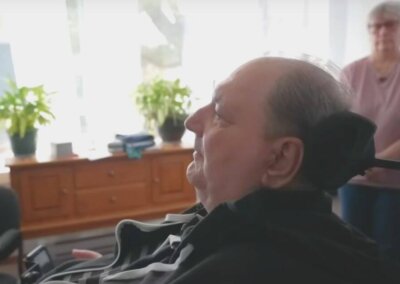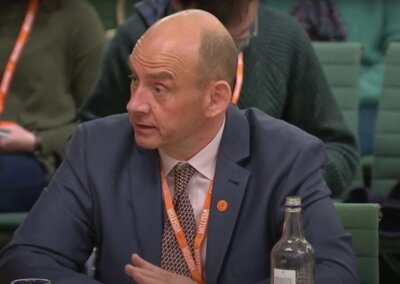One of Britain’s most senior judges, former President of the Supreme Court and current member of the House of Lords has said that an assisted suicide law should not be limited to people who are terminally ill and that it is “cruel and inhumane” not to provide the option of assisted suicide to those who are “incurably suffering”.
Last week, Baroness Brenda Hale of Richmond said that Parliament had “not put things right” in not making assisted suicide legal and lamented the fact that when the issue had been debated over the last ten years, the proposals “are limited to terminally ill people with only a few months to live”.
Making reference to the cases of Tony Nicklinson and Paul Lamb, two individuals who were left severely disabled after a stroke and car crash respectively, the former Supreme Court Justice suggested any assisted suicide legislation should be broad enough to include those who are “incurably suffering” but not terminally ill. Legislation that would allow assisted suicide only for those who are terminally ill “would not help [them]”.
“Of course, there must be proper safeguards to make sure that their decisions are freely made. But it is cruel and inhumane to force them to go on living against their will”.
Assisted suicide for those who are not terminally ill
Baroness Hale’s comments during a Humanists UK event came a decade after the majority of the Supreme Court ruled that the legal prohibition against assisted suicide was not in contravention of the European Convention on Human Rights. Notably, Baroness Hale was one of only two Justices who thought that a declaration of incompatibility should have been granted in the Nicklinson case.
Humanists UK have been lobbying for the legalisation of assisted suicide and explicitly campaign for an assisted suicide law that would enable non-terminally ill people to end their lives. Nathan Stilwell, Assisted Dying Campaigner for Humanists UK, said “[A]ll the previous attempts to change the law have been limited to people who are terminally ill with six months or fewer left to live. That is wrong”.
On their website, Humanists UK state their policy “that any adult of sound mind who is intolerably suffering from an incurable, physical condition and has a clear and settled wish to die should have the option of an assisted death. This includes adults with conditions like multiple sclerosis and locked-in syndrome, which are not terminal but can cause unbearable suffering without any possible relief. People with these conditions should not be omitted from assisted dying legislation”.
The sick and vulnerable are currently protected against assisted suicide and euthanasia in the UK
A 2020 British Medical Association (BMA) survey showed that 84% of doctors in palliative medicine would not be willing to perform euthanasia on a patient should the law ever change.
Assisted suicide was most recently debated and rejected in Parliament in 2015 by 330 votes to 118.
A recent Irish study on ageing found that three-quarters of people over 50 who had previously expressed a wish to die no longer had that desire two years later, and that many who do express a wish to die do so for non-medical reasons. The state of Oregon also found 53.1% of patients who chose an assisted suicide were concerned with being a “burden on family, friends/caregivers”, 94.3% of patients were concerned with being “Less able to engage in activities making life enjoyable”, 93.1% were concerned with “losing autonomy”, and 71.8% were concerned with “loss of dignity”. Of the total who have died since 1997, only 27.4% have listed “inadequate pain control, or concern about it” as one of their end-of-life concerns.
Spokesperson for Right To Life UK, Catherine Robinson, said “This is a real ‘mask-off’ moment for the assisted suicide lobby as one of its most senior judicial proponents argues for assisted suicide legislation for people who are not terminally ill. Even if an assisted suicide for people who are thought to be terminally ill were to be made lawful, Baroness Hale and Humanists UK’s statements reveal that this legislation is not the end goal of the assisted suicide lobby. Instead, they have a far more expansive law in mind”.
“In 2021, the Canadian Parliament repealed the requirement that the natural death of those applying for assisted suicide be ‘reasonably foreseeable’. This took place only five years after the original legislation allowing euthanasia and assisted suicide was passed in 2016. There is little reason to think that something similar could not happen here”.












